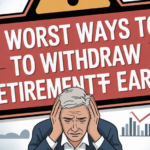When people think about their superannuation funds, most focus only on retirement savings. However, super funds also come with insurance coverage—including life insurance, Total and Permanent Disability (TPD), and income protection. These are often provided automatically, so many people don’t pay attention to them.
But here’s the truth: super coverage should never be taken for granted. It can change without notice, it may not suit your personal needs, and if left unchecked, it can even eat into your retirement savings.
In this blog, we will explore the main reasons why super coverage should not be taken for granted, with real-life examples, simple calculations, and practical tips to help you make informed financial decisions.
10 Reasons Why Super Coverage Should Not Be Taken for Granted
1. Automatic Insurance Can Be Cancelled
Under Australia’s Protecting Your Super reforms, automatic insurance can be cancelled if:
- Your super balance is less than $6,000.
- Your account is inactive for 16 months or more.
- You are under 25 years of age (unless you opt in).
Example
Imagine John, aged 23, just started his first job. His employer puts money into his super, but because John is under 25, his super fund does not give him automatic cover. If he doesn’t manually opt in, John has zero insurance protection, even though he assumes otherwise.
This shows why assuming your insurance is safe in super can be a big mistake.
2. Coverage May Not Suit Your Needs
Most super funds provide default coverage. That means you might be automatically insured for life or TPD, but the amount may be too low or irrelevant for your personal situation.
Example
Sarah has a mortgage of $600,000 and two young children. Her default life insurance inside super only provides $200,000. If something happens to Sarah, her family will still face a $400,000 shortfall.
So, while she technically has cover, it’s far from adequate.
3. Premiums Eat into Your Retirement Savings
Insurance premiums are directly deducted from your super balance. Over time, this reduces the money you have for retirement.
Calculation
- Annual premium: $200
- Super balance at age 30: $20,000
- Average return: 7% per year
- Time until retirement: 30 years
If Sarah keeps paying $200 from her super every year, she loses not just $6,000 (30 years × $200), but also the compound growth on that money.
Future value lost = $200 × [((1+0.07)^30 – 1) / 0.07] ≈ $18,600
So, by retirement, Sarah’s balance is about $18,600 lower because of insurance costs.
This doesn’t mean you should cancel insurance, but it does show why tracking the cost is important.
4. Terms and Conditions Can Change Anytime
Super funds often review their insurance providers every few years. When they switch providers, the definitions, exclusions, and benefits may change.
For example, a TPD claim may be defined as being unable to work in “any occupation” instead of your “own occupation.” This small wording change can make it much harder to receive a payout.
That’s why you should check your fund’s Product Disclosure Statement (PDS) regularly instead of assuming your cover stays the same.
5. Risk of Losing Cover When Changing Jobs
If you change jobs, you might move to a new super fund. Your previous insurance may stop automatically unless you consolidate or transfer it.
Example
Mark had income protection insurance in his old fund. When he switched jobs, his employer started contributing to a new fund that didn’t include income protection. Without realising, Mark lost his insurance cover.
This shows how easily super insurance can disappear when you switch jobs.
6. Pre-Existing Condition Exclusions
Many funds apply exclusions for pre-existing conditions during the first few years of cover. This means you might pay premiums but not be able to claim if your illness or injury existed beforehand.
Example
Anna had back pain before joining her new super fund. She later needed surgery and applied for TPD insurance. The claim was rejected because of the pre-existing condition clause.
7. Income Protection Inside Super May Be Limited
While it’s convenient to have income protection inside super, it may only cover you for a shorter benefit period (e.g., two years), whereas retail income protection policies can provide cover until age 65.
Also, payouts inside super may take longer because they have to meet both insurance conditions and superannuation release conditions.
8. Coverage Levels Decrease with Age
Some funds reduce the level of insurance automatically as you get older. For instance, your life insurance cover might reduce by half once you turn 60, just when you might still need strong protection.
This is another reason why passively relying on super cover is risky.
9. Super Insurance May Delay Your Claim
Since claims inside super often go through both the insurer and the trustee of the fund, the process can take longer. While recent data shows improvements, delays are still possible.
If your family needs money urgently in case of your death or disability, this delay can cause stress and hardship.
10. Limited Flexibility
Insurance in super is one-size-fits-all. You don’t get to choose detailed features like:
- “Own occupation” TPD definition
- Stepped vs level premiums
- Higher cover amounts tailored to your family’s needs
For complete flexibility, many people take out additional retail insurance policies outside super.
Practical Example: Comparing Inside vs Outside Super
Let’s compare two scenarios for a 35-year-old needing $500,000 life cover:
| Feature | Inside Super | Outside Super (Retail) |
| Premium | $500/year | $700/year |
| Flexibility | Limited | High (can choose own occupation, add riders) |
| Claim Process | Through trustee + insurer | Direct to insurer |
| Tax Benefits | Premium paid from super | Premium tax-deductible personally |
| Retirement Impact | Reduces super savings | No impact on super balance |
Although inside super is cheaper, outside cover may be better suited for personal needs.
Best Practices: How to Manage Your Super Coverage
- Check Your Current Cover – Log in to your fund’s portal and review your insurance type, cover amount, and cost.
- Assess Your Needs – Calculate how much insurance your family really needs (mortgage + living costs – savings).
- Look for Gaps – If default cover is too low, consider topping it up or buying retail insurance.
- Monitor Balance & Activity – Keep your super active and above $6,000 to avoid losing insurance.
- Review Regularly – Life changes such as marriage, children, or new jobs should trigger a review of your insurance.
- Seek Financial Advice – If confused, consult a licensed financial advisor who can recommend the right mix of insurance.
Conclusion
Super coverage provides valuable protection, but it is not a guarantee. It can be cancelled without notice, may not meet your personal needs, and can reduce your retirement savings if ignored.
The best way forward is to treat your super insurance as a starting point, not the full solution. Review it regularly, understand the costs, and if needed, add extra retail insurance for better protection.
By being proactive today, you ensure your family’s financial security tomorrow—without leaving anything to chance.










